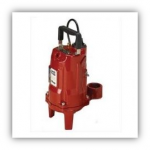What’s the Difference Between Cutter, Chopper and Grinder Pumps?
Many kinds of pumps are used in industries, companies, and residences to transfer fluids quickly. Numerous kinds of pumps are available, but cutters, chopper pumps, and grinder pumps are specially designed to remove solid waste.
Being aware of the critical characteristics of these types of pumps will help you determine the best fit for a specific application. We will dive deep into the inner workings of the cutter, chopper pumps, and grinder pumps to help you understand their unique features and functions.
Importance of Pumps
Pumps are essential instruments used in varied applications to transfer liquid or slurry from one place to another. They find abundant use in a variety of applications, from sewage disposal (they can help say that a building’s drainage system is, in another way, waste treatment in industrial and social setups) to mining, construction, and agriculture.
Cutter, chopper, and grinder pumps are efficient pumps used in the handling of solid waste. Each of them, even though they have the common goal of the process and breaking down of solids, has peculiar features and functionalities designed primarily for individual applications.
Thus, the main focus of this paper is to discuss the differences that exist between cutter, chopper, and grinder pumps, which gives them an idea regarding the same as to which they would be really required.
Understanding Pump Basics
A pump is a device meant to deliver fluids, taking the place of the fluids by pressure differences it creates from suction or displacements.
This allows it to find wide applications in sewage treatment plants, irrigation sectors, and all industrial types, including domestic water supply.
Cutter Pumps
It is for cutting up solid material so that appropriate small-size particles would be developed, which could even pass through sewage pumps, even in cases where sewage contains fibrous materials, plastics, and other solid waste materials.
Key Features
Most cutter pumps are fitted with sharp blades or cutting mechanisms, which shred the solid waste to prevent it from blocking and allowing it to flow freely.
Applications
Cutter pumps generally apply to solid waste in effluent systems, municipal sewage, and wastewater treatment plants.
Advantages and Limitations
Advantages: Effective in handling fibrous materials, reduces the risk of clogging.
Limitations: Higher maintenance requirements due to the wear and tear of cutting components.
Chopper Pumps
Chopper pumps use rotating blades or impellers to chop and macerate solid waste. In other words, they break the solid waste into smaller pieces to facilitate pumping.
Key Components
Its chopper pumps have robust cutting mechanisms with impellers hardened against abrasion by solid particles.
Applications
It is ideal for the following applications in mining, food processing, and all industrial wastewater treatments involving pumping slurries, thickened sludges, and sewage containing comparatively big solids.
Advantages and Limitations
Advantages: Efficient in handling large solids, reduces the risk of pump blockages.
Limitations: Higher initial investment cost compared to conventional pumps.
Grinder Pumps
Grinder pumps will, by definition, be designed to cut up solid waste into a very fine slurry that can easily be pumped through small-diameter pipelines or into a sewer.
Grinder pumps include a grinding mechanism, shredding, or cutting system that eradicates the solid material of the waste, thereby facilitating easy movement and blockage of the pipe.
Applications
Grinder pumps are extensively used in residences, especially in places where sewage doesn’t flow much or where gravity-based sewer systems are impracticable.
Advantages and Limitations
Advantages: Suitable for low-pressure sewer systems, compact design for easy installation.
Limitations: May require frequent maintenance to prevent wear and tear of grinder components.
Selecting the Right Pump for Your Needs
When choosing a pump, you must consider the flow rate, head pressure, amount of solids, and space within which it has to work.
Experts or engineers should advise on this, as they will be advising on the selection of the best and most appropriate pump for the application given, enabling good service and long life.
Maintenance and Troubleshooting Tips
General maintenance practices for chopper, cutter, and grinder pumps increase their operational life. So, you should regularly check these pumps for loud noise, loose bolts, and damaged parts. Also, change all the worn parts on time so that it can run for a long time without causing any issues to your plumbing system.
Also, understanding typical pump troubles like overheating, leakage, and impeller damage is very important in order to implement the right troubleshooting strategies.
Conclusion
Cutter, chopper pumps, and grinder pumps provide many features and functions that apply maceration technology. They macerate fibrous materials to convert solid waste into a fine slurry. Understanding the difference between cutter, chopper, and grinder pumps helps you to make the most informed decision, guaranteeing operational efficiency and a longer life expectancy for the pumping systems. You can choose any of these pumps based on your requirements and budget. If you plan to buy a high-quality pump, then PumpProducts can be a great option for you. Here, you can buy any kind of pump from various brands.












